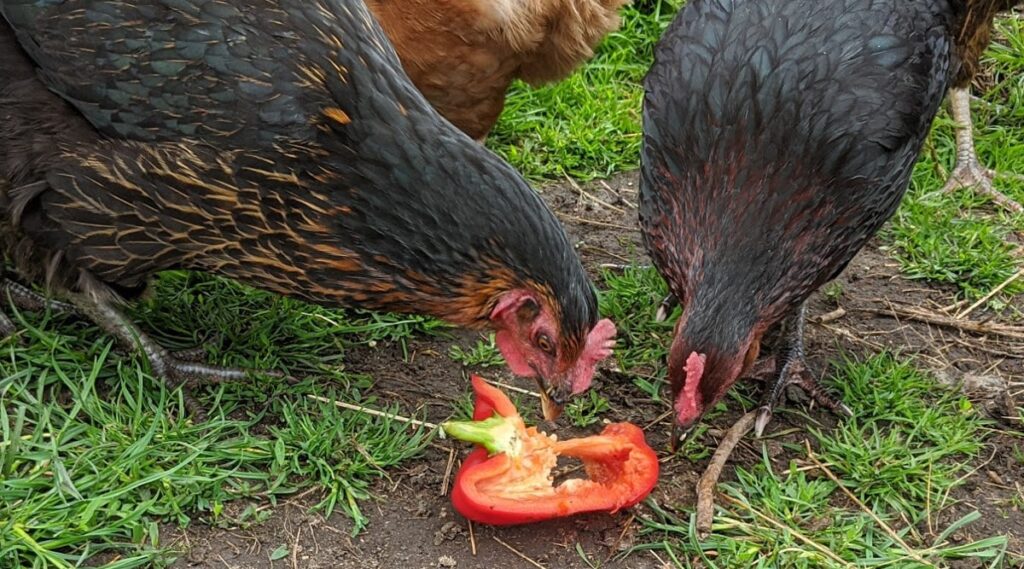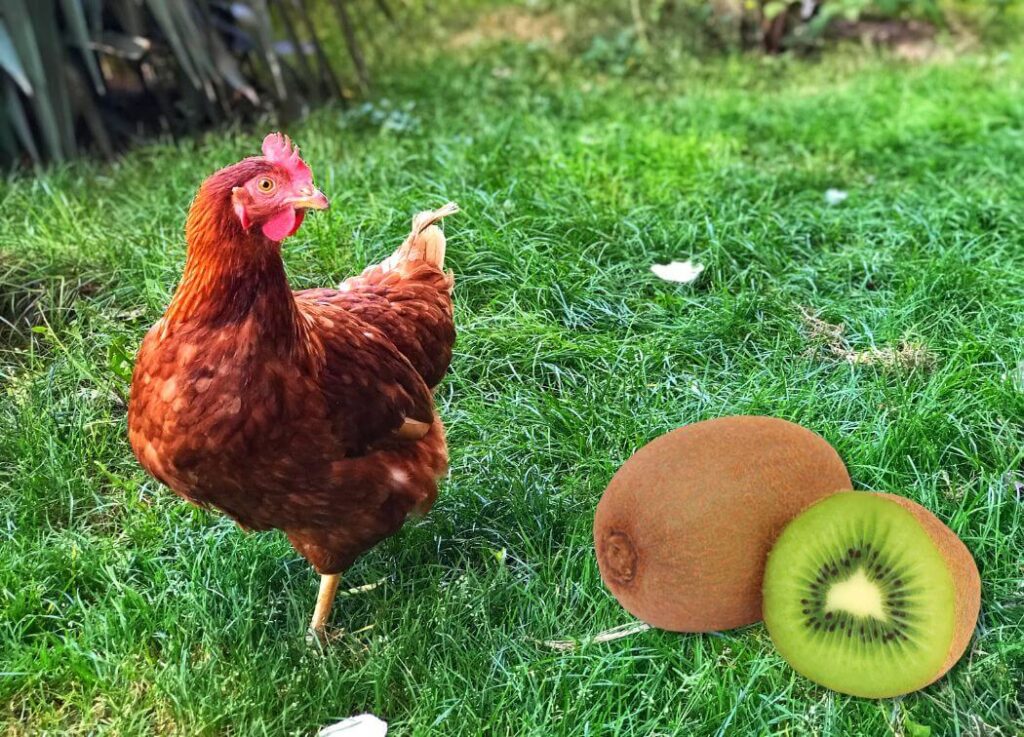If you’re a backyard chicken keeper or a homesteader, you probably already know that chickens love foraging and snacking on a variety of fruits and vegetables. Among the questions that often arise is: can chickens eat kiwi? The answer is yes—chickens can safely eat kiwi, but there are several things to consider before making this fruit a regular part of their diet. This comprehensive guide will explore everything you need to know about feeding kiwi to your chickens, including its nutritional value, potential risks, preparation tips, and more.
Kiwi, also known as Chinese gooseberry, is a small, oval fruit with a fuzzy brown exterior and bright green or golden flesh inside. Known for its sweet and tangy flavor, kiwi is packed with essential nutrients like vitamin C, vitamin K, fiber, and antioxidants. Originally grown in China, kiwi is now cultivated in many parts of the world, including New Zealand, Italy, and the United States.
Can Chickens Eat Kiwi?
Yes, chickens can eat kiwi, and most will enjoy it as a tasty treat. Kiwi is not toxic to chickens and offers a variety of nutritional benefits when served in moderation. However, while kiwi is safe, it should not replace a chicken’s main feed. It should be considered a supplement or treat.
Nutritional Benefits of Kiwi for Chickens
Kiwi is a nutrient-rich fruit, and feeding it to chickens occasionally can provide the following health benefits:
1. Vitamin C
Kiwi is extremely rich in vitamin C, which can help strengthen the immune system of chickens. Although chickens produce their own vitamin C, an extra boost can be helpful during periods of stress, illness, or extreme weather.
2. Fiber
Fiber aids in digestion and supports gut health in chickens. A healthy digestive system helps chickens better absorb nutrients from their feed.
3. Antioxidants
The antioxidants in kiwi help neutralize harmful free radicals in the body. This can reduce oxidative stress and contribute to the overall health of the chicken.
4. Potassium
Potassium is vital for heart function, muscle contractions, and regulating fluid balance in chickens.
5. Low in Fat
Kiwi is low in fat, making it a healthy snack when fed in appropriate portions.
Can Chickens Eat Kiwi Skin?
Yes, chickens can eat kiwi skin, but it’s not always their favorite part. The skin is rich in fiber and nutrients, but it can be tough and fuzzy, which may deter some chickens. If you choose to feed kiwi skin, make sure it is clean and free of pesticides or wax coatings. Organic kiwis are preferable if you’re feeding the skin.
Tip: Try chopping the kiwi, skin included, into small pieces to make it more appealing to your flock.
Can Chickens Eat Kiwi Seeds?
Yes, chickens can eat kiwi seeds without any problems. Unlike some other fruits like apples (which contain cyanogenic compounds in their seeds), kiwi seeds are soft, small, and completely safe for chickens to consume.
How to Prepare Kiwi for Chickens
Here are simple steps to safely prepare kiwi for your flock:
- Wash Thoroughly: Whether you’re feeding the flesh or the whole fruit with skin, wash the kiwi thoroughly to remove any chemicals, pesticides, or dirt.
- Cut Into Pieces: Chop the kiwi into small, manageable chunks. This prevents choking and makes it easier for chickens to peck at.
- Serve Fresh: Serve the kiwi fresh, and avoid feeding any spoiled or moldy fruit to your chickens.
- Limit the Quantity: Offer kiwi in moderation—ideally no more than 10% of your chicken’s total daily diet.
- Remove Uneaten Pieces: Always clean up any leftover fruit to avoid attracting pests or causing mold growth in the coop.
How Often Can Chickens Eat Kiwi?

While kiwi is healthy, it should be an occasional treat rather than a staple in their diet. Giving kiwi once or twice a week in small amounts is sufficient. Overfeeding can lead to imbalances in their nutrition or digestive upset due to the fruit’s high sugar content.
Potential Risks of Feeding Kiwi to Chickens
Even though kiwi is generally safe, there are some risks to be aware of:
1. High Sugar Content
Kiwi is relatively high in natural sugars. Overconsumption can lead to weight gain, diarrhea, or even crop issues in chickens.
2. Spoilage
Like any fresh fruit, kiwi can spoil quickly in hot weather. Rotting fruit attracts flies and can harbor bacteria that are dangerous to poultry.
3. Pesticides
Non-organic kiwis may be treated with pesticides that are harmful to chickens. Always wash fruit thoroughly or choose organic produce.
Can Baby Chicks Eat Kiwi?
It is best to avoid feeding kiwi to baby chicks. Their digestive systems are still developing, and introducing sugary or acidic fruits like kiwi can cause digestive issues. Stick to a specially formulated chick starter feed until they’re older (around 6–8 weeks), then slowly introduce small treats if desired.
Best Practices for Feeding Fruits Like Kiwi
Here are general best practices to keep in mind when feeding kiwi and other fruits to chickens:
- Variety is Key: Don’t rely on a single type of fruit. Offer a variety of fruits and vegetables for a well-rounded diet.
- Balance with Protein: Ensure that treats don’t displace essential nutrients found in high-quality poultry feed.
- Watch Behavior: Monitor your flock after feeding them kiwi. Some chickens may not tolerate it well, and it’s important to identify any signs of discomfort or illness.
- Feed During the Day: Offer treats like kiwi earlier in the day so chickens have time to digest properly before roosting.
Other Fruits Chickens Can Eat
In addition to kiwi, chickens enjoy a wide array of fruits including:
- Apples (without seeds)
- Berries (strawberries, blueberries, raspberries)
- Melons (watermelon, cantaloupe)
- Bananas
- Pineapple
- Pears
Always research each fruit before feeding to ensure it’s safe and prepared properly.
Conclusion
So, can chickens eat kiwi? Absolutely! Kiwi is a delicious, vitamin-packed fruit that can be a healthy and enjoyable treat for your flock. When given in moderation and prepared properly, it can support your chickens’ immune systems, digestion, and overall well-being.
However, as with all treats, balance is critical. Ensure that kiwi and other fruits make up only a small portion of your chickens’ diet. With proper care, feeding your chickens kiwi can be a rewarding way to enhance their diet while giving them a tasty snack they’ll love.
FAQs
Q1: Can chickens eat kiwi every day?
No, kiwi should be offered in moderation—once or twice a week is ideal. Daily feeding may lead to imbalances in diet due to the fruit’s sugar and acidity.
Q2: Do chickens like kiwi?
Many chickens enjoy kiwi due to its sweetness and soft texture. However, individual preferences vary. Some may ignore it at first but eventually warm up to it.
Q3: Can chickens eat golden kiwi?
Yes, chickens can eat golden kiwi. It has a similar nutritional profile to green kiwi and is safe when served in moderation.
Q4: Is kiwi good for laying hens?
Yes, kiwi contains vitamins and antioxidants that support general health, which indirectly benefits egg-laying. But it shouldn’t replace calcium-rich foods essential for egg production.
Q5: What are signs that my chickens don’t tolerate kiwi well?
If your chickens experience diarrhea, loss of appetite, or lethargy after eating kiwi, discontinue feeding it and consult a veterinarian if symptoms persist.
Also read: Elections


